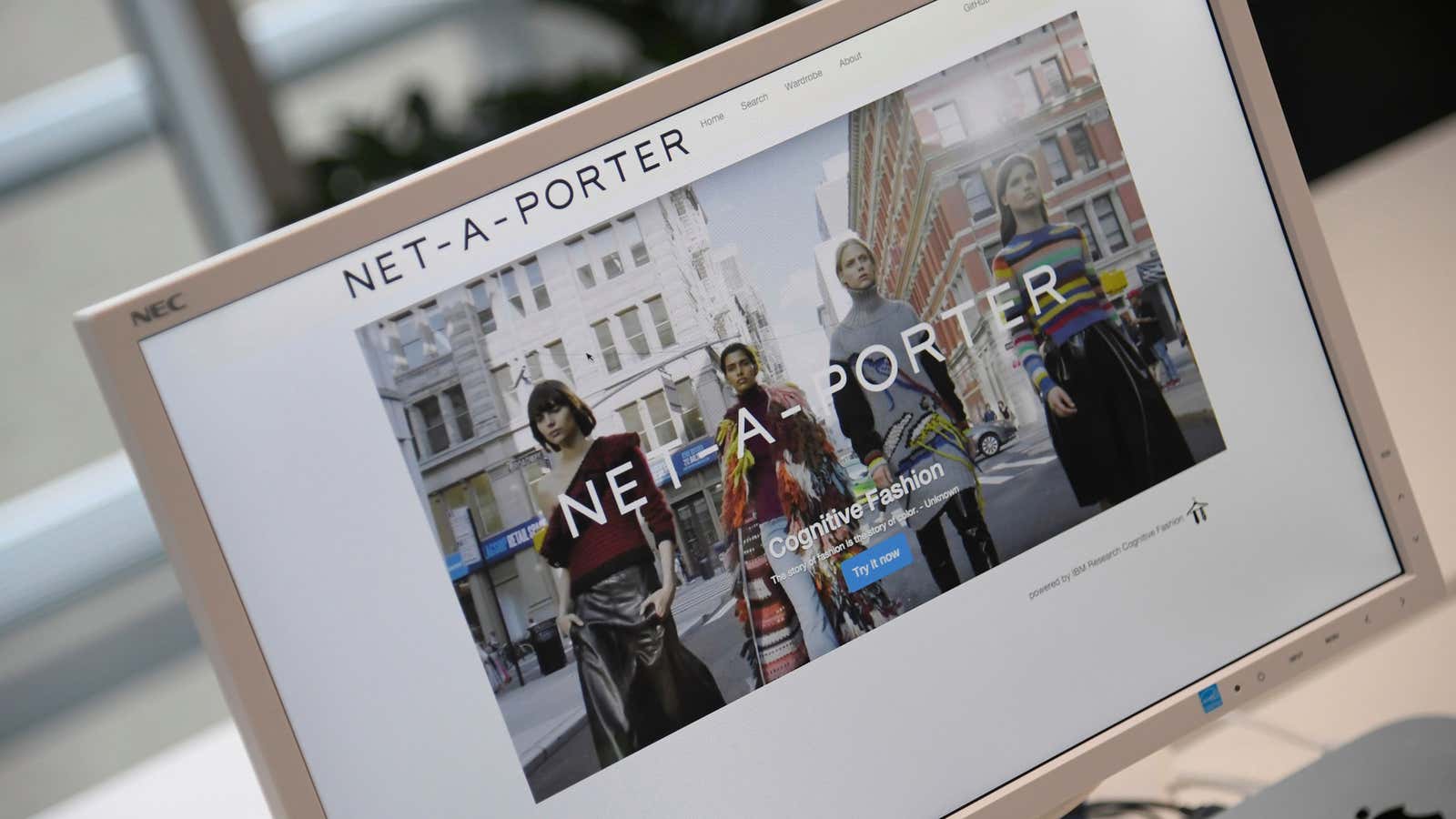How’s this for big? A major new partnership has Yoox Net-a-Porter Group (the world’s biggest online luxury retailer) joining forces with Alibaba (China’s biggest e-commerce company) to feed the appetite of Chinese shoppers (the world’s biggest luxury buyers) for high-end fashion.
Richemont, the also-big Swiss luxury conglomerate that owns Yoox Net-a-Porter Group, aka YNAP, along with companies such as Cartier, Chloé, IWC Schaffhausen, and Montblanc, announced the joint venture with Alibaba today (Oct. 26). They didn’t disclose the financial terms of the deal.
The partnership leverages YNAP’s massive roster of luxury labels, some 950 of which it currently distributes in China, and Alibaba’s extensive logistics network. It will see YNAP and Alibaba launch mobile apps in China for Net-a-Porter and Mr. Porter, the multi-brand, current-season channels operated by YNAP. (The group also has Yoox, which sells past-season items.) Alibaba, meanwhile, will provide “technology infrastructure, marketing, payments, logistics and other technology support” the companies said.
Net-a-Porter and Mr. Porter will also open stores on the “Luxury Pavilion” that Alibaba introduced last year on its business-to-consumer site, Tmall, as a way to, in Alibaba’s words, “bring the same brand exclusivity and tailored shopping experience that consumers would get in a brick-and-mortar store to the world of e-commerce.” Beyond that, the two companies said they will also explore future projects focused on serving Chinese shoppers, both at home and traveling abroad.
It’s another victory for Alibaba in its efforts to cozy up to Europe’s luxury powerhouses, when brands once accused it of fostering a thriving trade in counterfeits of their products on its marketplace platform. YNAP, which hit bumps on a previous venture into China, was openly looking for a partner (paywall).
The upside for both is obvious: Each is eyeing the opportunity presented by China’s luxury shoppers. According to management consulting firm Bain & Company, Chinese nationals accounted for 32% of the world’s luxury spending in 2017, more than any other nationality. While Chinese luxury buyers still do a lot of their shopping during trips abroad, more of their shopping is starting to shift back home.
Their share of luxury spending is only set to grow. The consultancy McKinsey estimated in a report last year that, by 2025, Chinese shoppers will account for 44% of global luxury spending. In that year, it said, “7.6 million Chinese households will represent RMB 1 trillion in global luxury sales, an amount that is double that of 2016, and equivalent to the size in 2016 of the French, Italian, Japanese, UK, and US markets combined.”
Chinese millennials are one of the driving forces behind that growth. (Just look at their love for pretending to fall out of cars, spilling all their high-end stuff for all to see.) These young Chinese are digitally savvy. Digital channels already have a significant influence on luxury buying, and online sales are quickly growing, even though most luxury purchases still happen in stores.
Alibaba noted in a recent blog post that its luxury sales on Tmall jumped 46% in the 12 months through June 2018, and the total number of luxury shoppers rose 36%. It also pointed out that e-commerce lets brands reach shoppers in China’s smaller cities, where most luxury brands—except for maybe Prada, with stores in more than 20 Chinese cities—generally don’t have physical stores.
